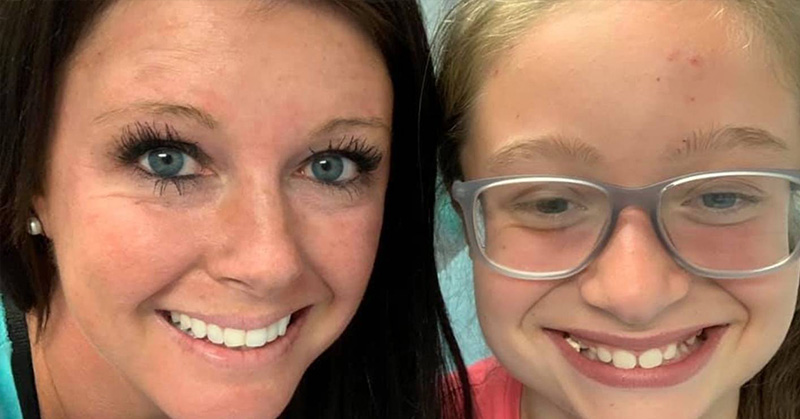Alicia Renee Phillips, a mother in Clinton, Tennessee, had her little sister, age 10, over for a sleepover. It was a normal get-together, and the two planned to go to church the next day. Before church, Phillips suggested that they style her little sister’s hair. The hairstyling, oddly enough, led to her little sister having a seizure-like episode merely from having her hair curled, Phillips later detailed in a Facebook post.
During the styling, Phillips described her sister, who was seated, “closed her eyes and leaned forward”. Phillips thought her sister, known for being goofy, was kidding around. But when her sister repeated the action and began gagging, Phillips called their mother.
They took her sister’s temperature, which was normal, but then the child collapsed
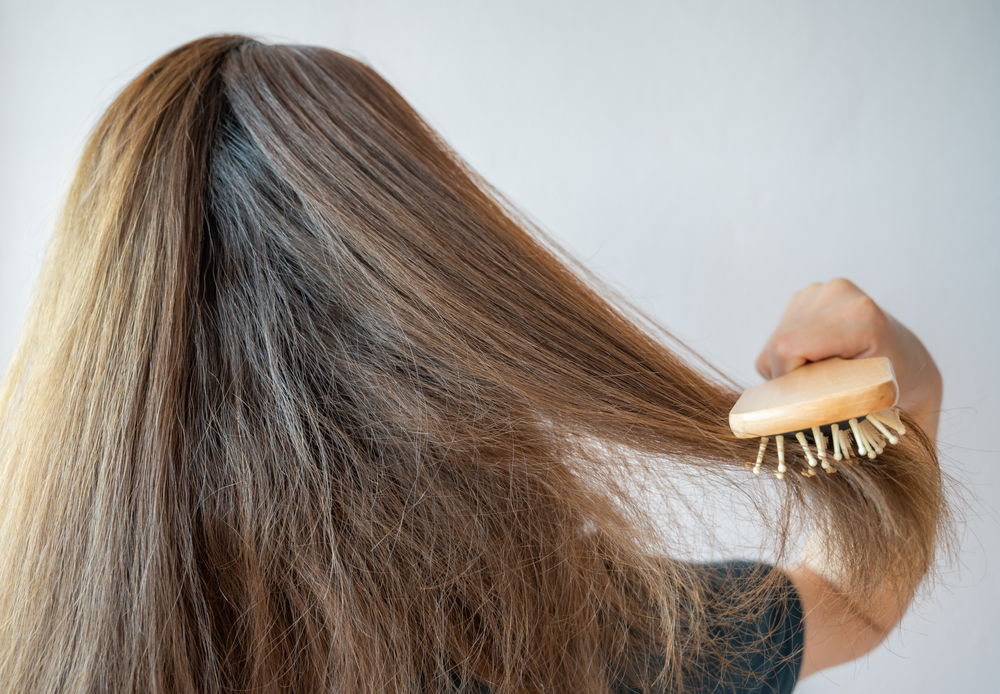
Phillips said her sister was unresponsive for a minute before she began blinking and speaking. Phillips thought what she witnessed could have been a seizure, as her sister’s hands were shaking during the episode.
Their mom called their pediatrician, who advised them to go to the emergency room. Tests were performed, but all results came back normal. The doctor who tended to them in the emergency room then suggested hair-grooming syncope as the diagnosis.
Read More: The Cure of Baldness May Have Been Discovered, Scientists Say — and It’s Hiding In Your Hairy Moles
Definition of Hair-Grooming Syncope and Its Causes
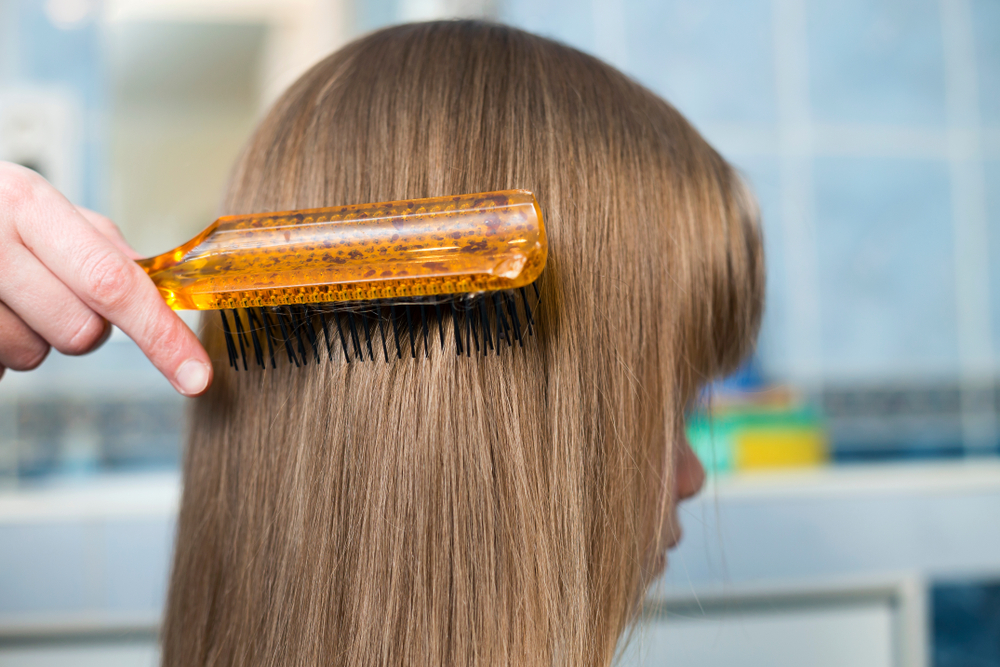
The word syncope refers to fainting, or more specifically, the “sudden loss of consciousness and muscle tone caused by cerebral hypoperfusion” [1]. Hypoperfusion simply refers to shock, or, not enough oxygen and nutrients being delivered to tissues in the body. Essentially, hair-grooming syncope is a type of fainting that’s caused by hair brushing or styling.
It sounds bizarre, but the condition is real and usually happens in children. The syncope can result from hair combing, brushing, braiding, blow-drying, or for some, even a haircut [2]. Hair-grooming syncope is similar to what happens when people faint from having their blood drawn or at the sight of blood, although some evidence shows that syncope is possible as the result of eye examinations, dental procedures, or watching television about medical matters or animal biology [3].
How Does Hair-Grooming Syncope Happen?
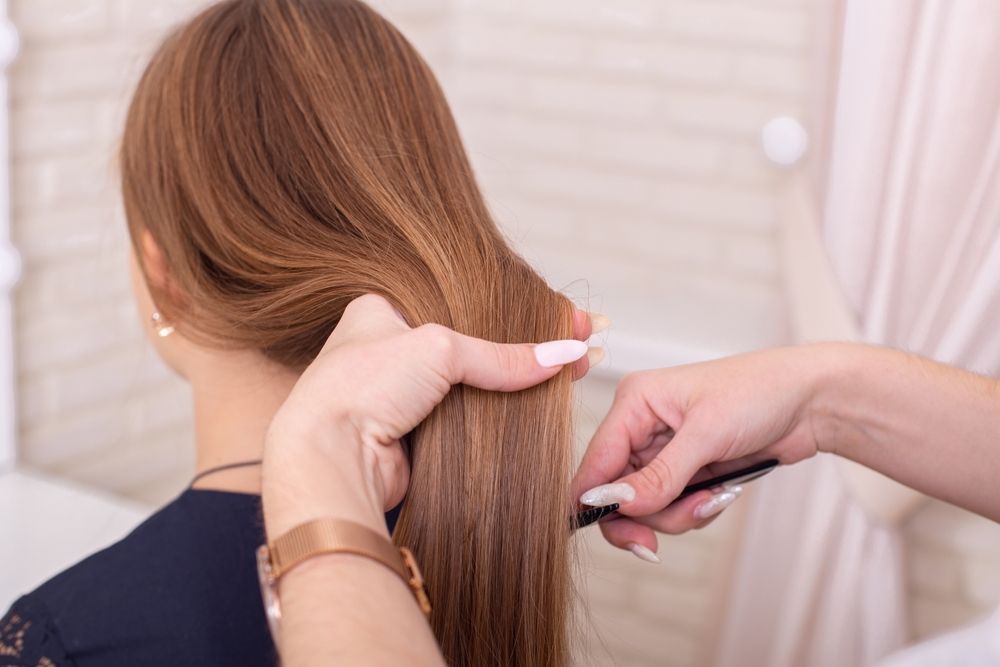
Just as some people begin to feel light-headed and queasy when they see blood, so some people will be sensitive when it comes to the sensation of hair grooming. Some research shows that girls are more likely to faint from hair combing while boys are more likely to faint from haircutting, although in general, girls are more likely than boys to experience fainting [4].
Hair-grooming syncope is suspected to be caused by a drop in blood pressure which reduces the blood supply—and therefore the oxygen—to the brain, leading to a loss of consciousness. Although sitting can help reduce feelings of dizziness or light-headedness that come with passing out, hair-grooming syncope can happen while sitting or standing, as is what happens with Phillips’ sister.
While syncope may mimic a seizure in some cases, syncope is not epilepsy.
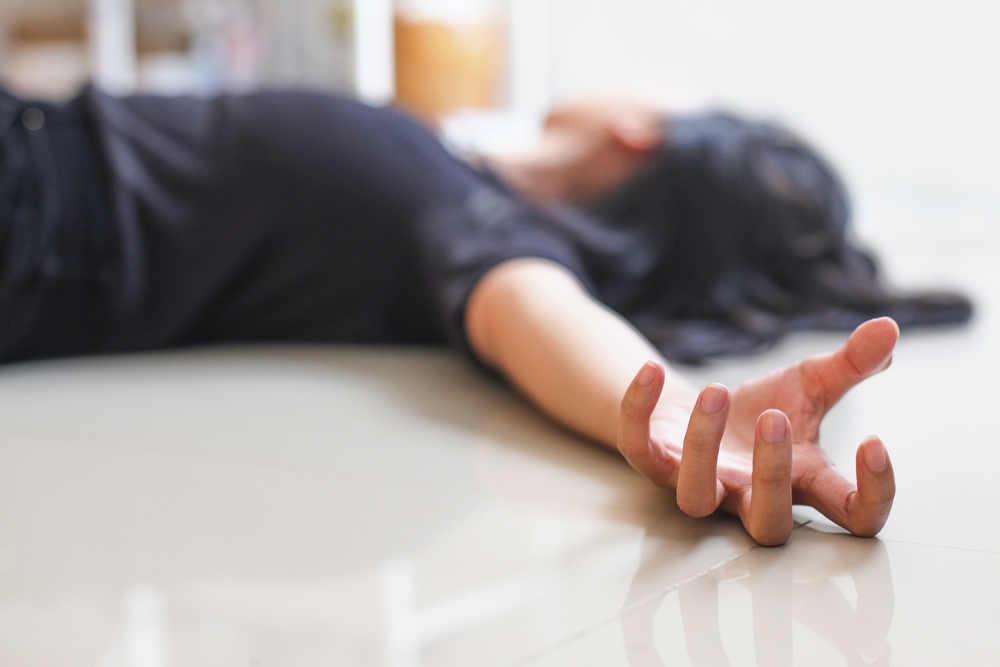
Epilepsy happens as a result of irregular electrical activity in the brain while syncope is a result of lack of blood and oxygen to the brain [5]. Experts suspect the vagus nerve is responsible for this loss of consciousness. The vagus nerve is the longest, most complex nerve that connects the brainstem to the body, and allows the brain to receive info about some of the body’s functions [6].
The vagus nerve can cause a drop in blood pressure so that not enough blood and oxygen will reach the brain. Typically lying or falling down—as the body makes us do during fainting—will help resume blood flow to the brain [7].
Read More: Changes in Your Hair May Indicate a Thyroid Issue
What to Do If You Suspect You Have Hair-Grooming Syncope
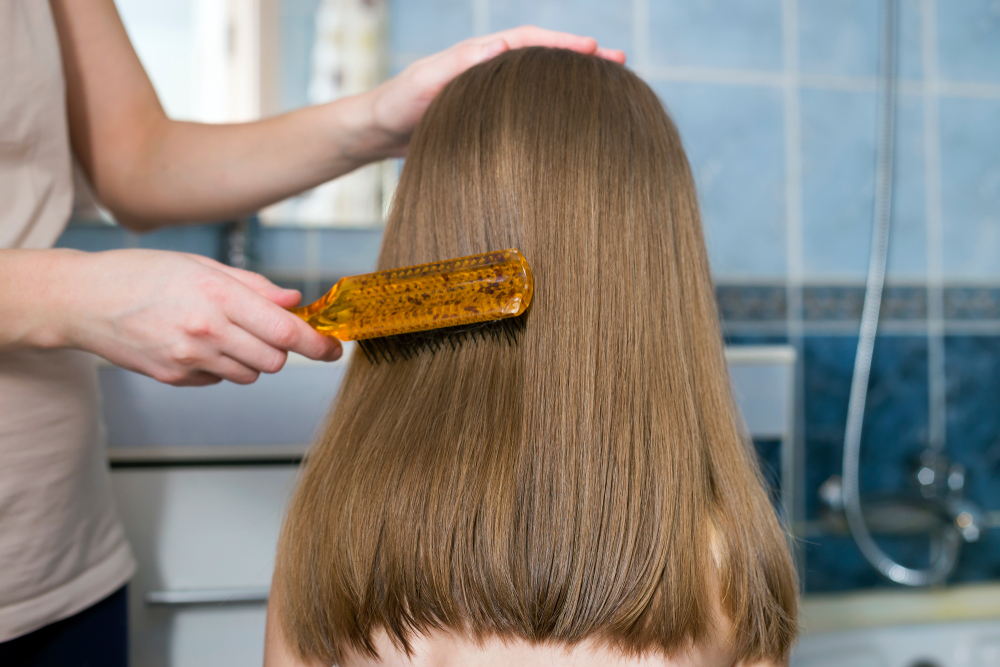
It’s not known how common hair-grooming syncope is, as many people don’t go to the emergency room for it and even fewer people may realize that their fainting was the result of hair brushing. Symptoms of hair-grooming syncope are similar to those of other conditions where people faint and will include nausea, feeling dizzy, sweating, changes in vision, feeling “light-headed”, and loss of consciousness.
Typically, children will outgrow hair-grooming syncope. However, it might be important for doctors to cultivate more awareness of this condition and to ask questions about hair grooming in regards to fainting or falls in the bathroom [8]. If you suspect you or your child is sensitive to hair grooming, it’s important to take the following precautions when grooming their hair or getting their hair cut:
- Avoid dehydration. Ensure your child has enough electrolytes (think salt and potassium) and water.
- Don’t have your child stand for long periods of time before receiving a haircut or hair styling.
- Ensure your child eats regular meals, especially before hair grooming.
- Have your child remain seated during hair grooming.
Should your child start to feel dizzy, lightheaded, clammy, or nauseous, stop and take a break. Have your child lie down and elevate their legs until the sensation passes. You can also try having them tense the muscles in their hands, arms, or legs to help prevent passing out [9].
The doctor that Phillips and her sister saw in the emergency room says he sees less than five cases of hair-grooming syncope every year. There are likely more cases, although many people may not be aware of this condition.
The Importance of Knowing Triggers and Not Confusing Syncope with Seizure
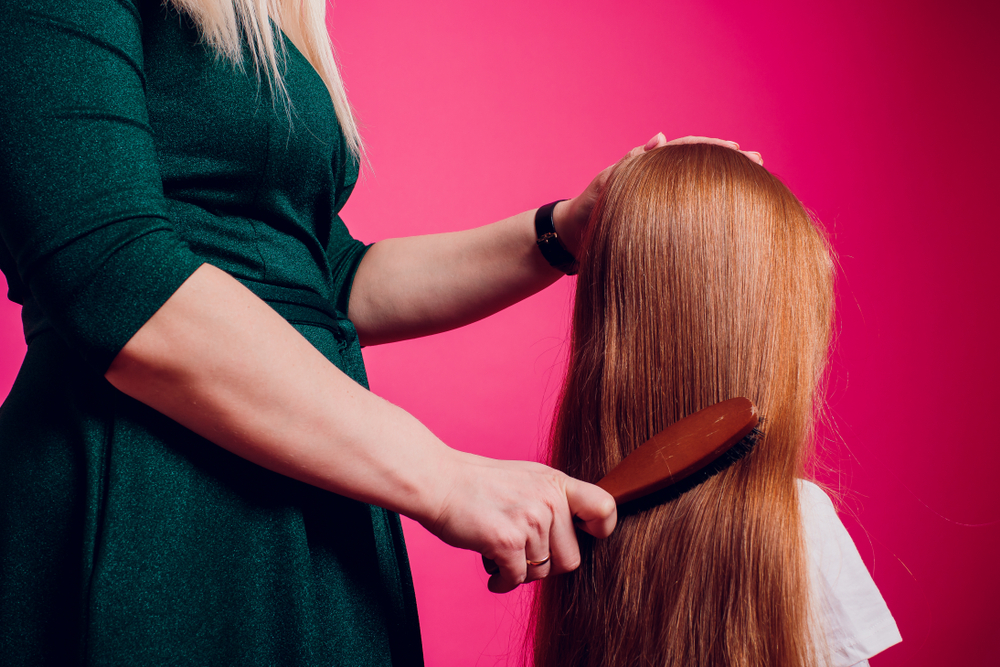
Knowing your or your child’s history and their triggers can be important in preventing fainting. If you know your child is sensitive to hair grooming, take precautionary measures to protect them when hair grooming is necessary.
It’s also important to ensure your child is aware that they can pass out when grooming takes place, especially when it comes to family members grooming their hair, or sleepovers and parties where friends might do their hair. Having your child be able to identify when they begin feeling strange and pausing to lie down can help prevent fainting and protect your child.
Symptoms of Syncope
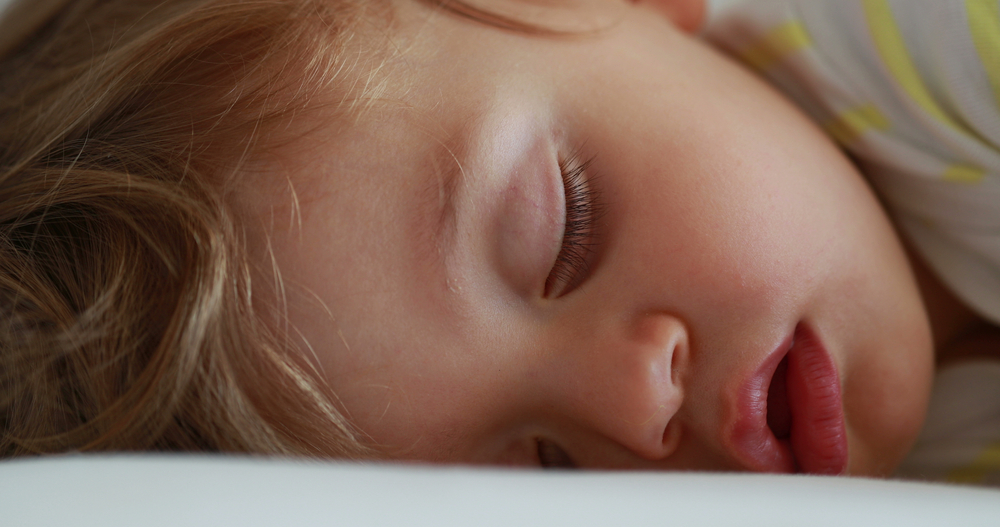
If your child is exhibiting symptoms of a seizure—including loss of consciousness combined with muscle spasms, blue lips, or drooling—don’t mistake this for mere fainting and seek immediate medical attention. For some people, the difference between witnessing someone passing out and someone experiencing a seizure won’t be immediately clear, so regardless, it may be a good idea to seek medical attention in such cases [10].
Have you ever heard of hair-grooming syncope or know anyone who suffers from the condition? Being aware of this medical condition may help children who are sensitive to hairstyling from falls or injury as a result of fainting!
Read More: [rewrite] 9 DHT Blocking Foods To Help Reverse Hair Loss
Sources
- https://journals.sagepub.com/doi/full/10.1177/0009922813488652
- https://www.jwatch.org/jw199304300000007/1993/04/30/seizures-triggered-hair-grooming
- https://www.ncbi.nlm.nih.gov/pmc/articles/PMC1768435/
- https://www.ncbi.nlm.nih.gov/pubmed/19571334
- https://www.epilepsy.com/start-here/about-epilepsy-basics/what-happens-during-seizure
- https://www.medicalnewstoday.com/articles/318128.php
- https://www.cedars-sinai.org/health-library/diseases-and-conditions/v/vasovagal-syncope.html
- https://pdfs.semanticscholar.org/f30a/aa1aee6ee7ea782fd1ac1e6ba251b485ac7d.pdf
- https://www.health.harvard.edu/press_releases/why-fainting-happens-and-how-to-nip-it-in-the-bud
- https://journals.lww.com/em-news/fulltext/2017/06000/InFocus__Clinically_Differentiating_Seizure_from.6.aspx
- https://www.goodmorningamerica.com/wellness/story/womans-viral-post-warns-parents-condition-triggered-styling-64338358
